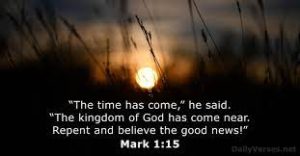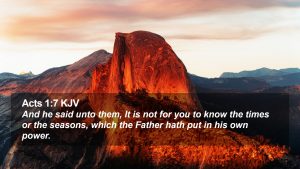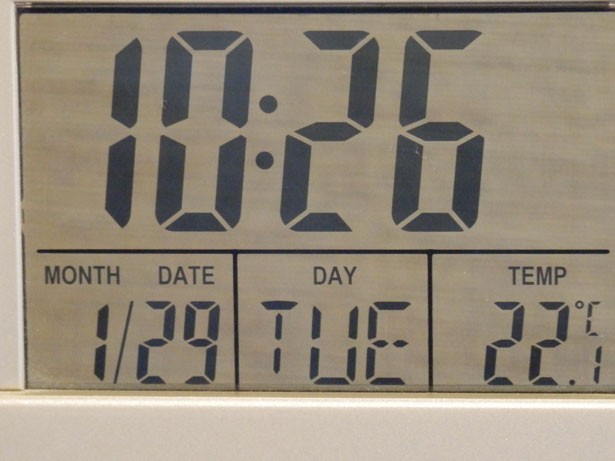 T for Time
T for Time
Time – we speak about it in many ways:
“The time comes… Time passes… Time flies…
I don’t have time… If you had time… If there is time…”
Obviously, time is measured in different ways according to the beliefs of people.
So there are calendars called: Gregorian, Hebrew, Moslem, Hindu, Chinese, etc.
But why exactly do we strive to measure time?…
Could it be that we have some relationship with time?
Jesus has spoken about time, precisely at different moments of his existence.
One day, he has said to his apostles, in a rather mysterious manner:
“The time is coming when you will long to see one of the days of the Son of Man,
but you will not see it (Luke 17:22).
But, at the beginning of his preaching to people, Jesus went to Galilea and he spoke these words:
“The time has come. The kingdom of God has come near.
Repent and believe the good news!” (Mark 1:14-15).
“The time that has come, it is God who is near – this is the “Good News of God”
In Jesus, God has made himself near – year after year, in this our time,
this is what we celebrate at Christmas!
God’s proximity, a piece of good news as none other!
It remains a permanent invitation to change our ways, our attitudes, our behaviour,
to adjust them to God’s own!
Has he not created us in his image?
The period of Lent represents what the apostle Paul speaks about: 
“I tell you, now is the time of God’s favor, now is the day of salvation” (2 Corinthians 6:2).
“The time that has come… the time of God’s favor…” It is here now!
 We see it: in such a situation, what is needed is to set some priorities.
We see it: in such a situation, what is needed is to set some priorities.

 “It is not for you to know the times or dates the Father
“It is not for you to know the times or dates the Father In the gospel text of this 1st Sunday (Mk.1:13-15), we hear Jesus tell us:
In the gospel text of this 1st Sunday (Mk.1:13-15), we hear Jesus tell us:

 “FIRST THINGS FIRST”!
“FIRST THINGS FIRST”!


 No longer so with all our silent gadgets still doing the same
No longer so with all our silent gadgets still doing the same  old task of… measuring time. And with the modern tempo of our busy lives, you will still hear the well-worn expressions: “Time flies”… “I didn’t have the time…” “You should be on time…” “If we have time…”
old task of… measuring time. And with the modern tempo of our busy lives, you will still hear the well-worn expressions: “Time flies”… “I didn’t have the time…” “You should be on time…” “If we have time…” Christmas has gone by, the New Year has been with us for 10 days now, and we have celebrated the Feast of the Baptism of the Lord – so we are back to ‘ordinary time’, or… are we?
Christmas has gone by, the New Year has been with us for 10 days now, and we have celebrated the Feast of the Baptism of the Lord – so we are back to ‘ordinary time’, or… are we?